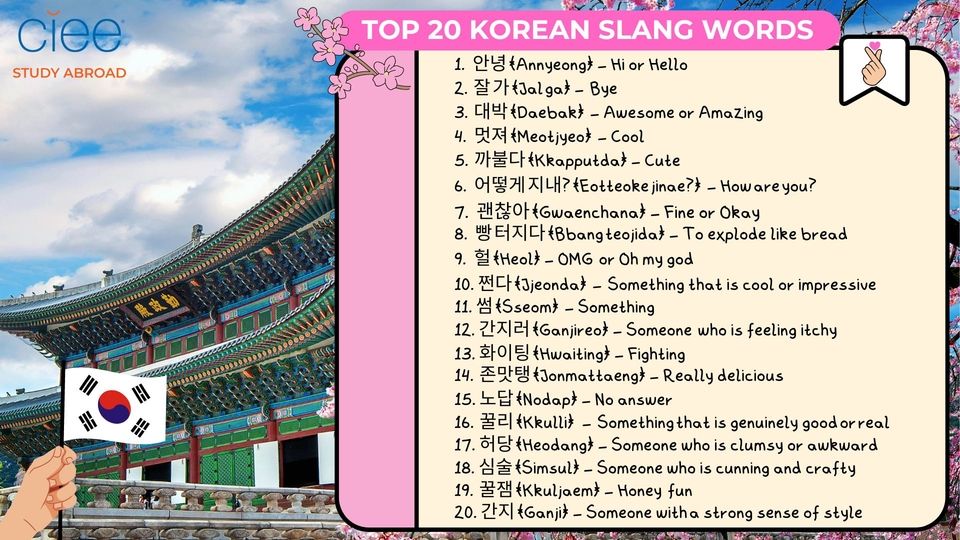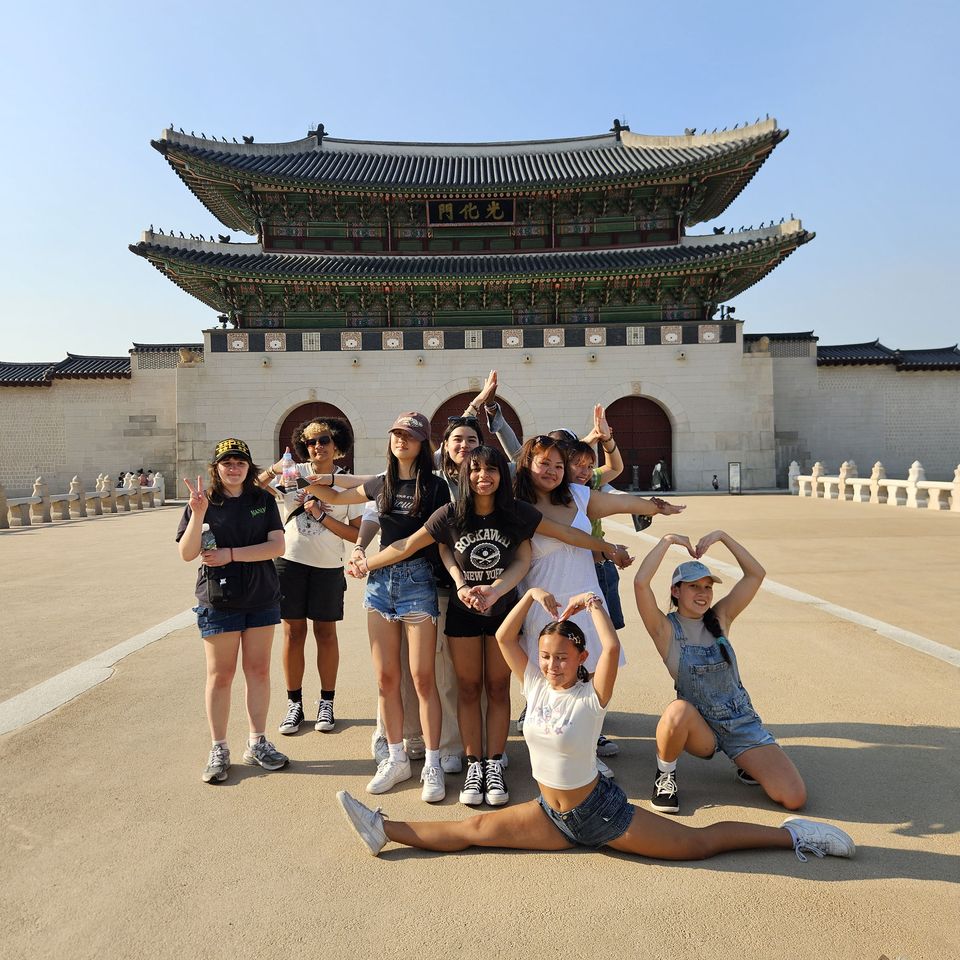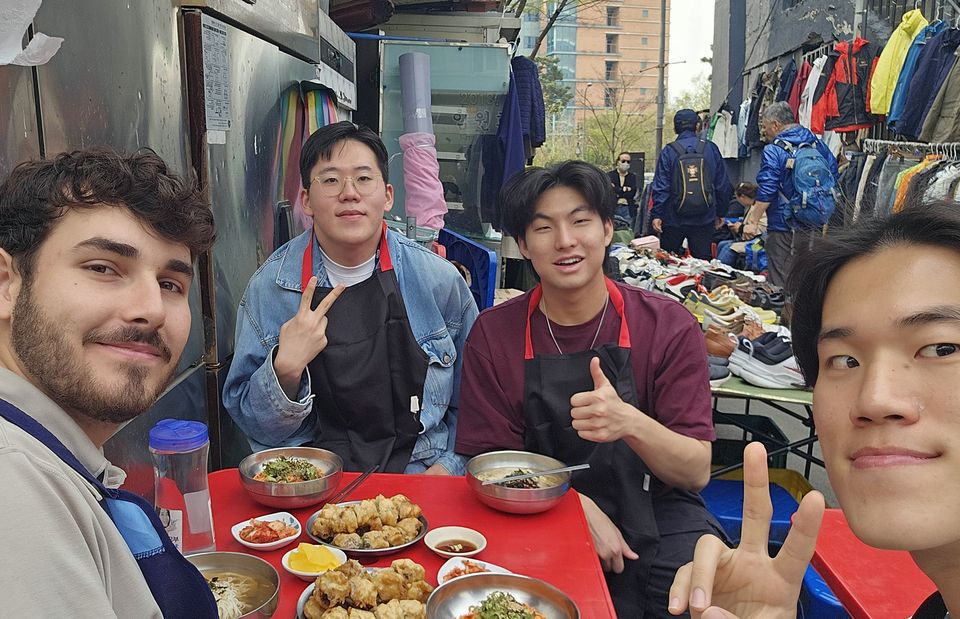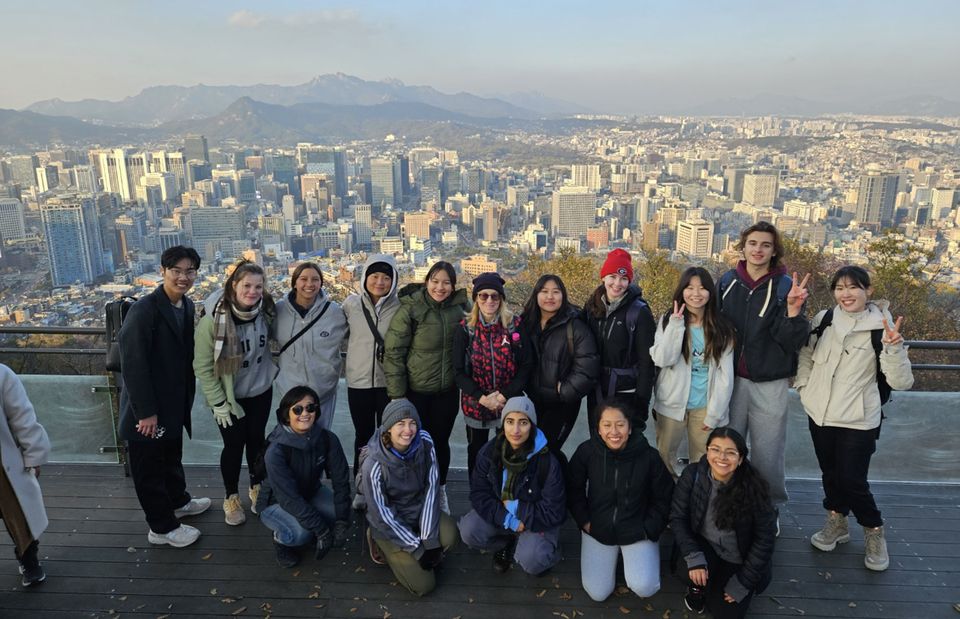Top 20 Korean Slang Words and Phrases You Must Know
Are you worried about traveling to South Korea and feeling lost in conversation with locals, struggling to understand the Korean slang they're using? Don't worry; you're not alone. Just like any other language, Korean is full of slang expressions that might not be found in textbooks but are used commonly in everyday conversations.
Whether you're planning a study abroad adventure in South Korea or simply want to impress your Korean friends, mastering some Korean slang terms can take your language skills to the next level. Without further ado, let’s dig into the top 20 Korean slang words and phrases you need to know.

Read More: Study Abroad in South Korea: The Ultimate Guide
Top 20 Korean Slang Phrases and Words
Korean Slang #1: 안녕 (Annyeong)
This is a casual way to say "hi" or “hello” in Korean slang often used in informal settings like talking to a friend.
Korean Slang #2: 잘 가 (Jal ga)
Since you know how to say “hi” in Korean slang, it only makes sense to learn how to say “bye” in Korean slang. "Jal ga" is a simple and commonly used way to do just that. It's informal and can be used to say goodbye to friends or people you're on familiar terms with.
Korean Slang #3: 대박 (Daebak)
Used to express excitement, “daebak” is how locals say “awesome” in Korean slang and “amazing” in Korean slang. If something is really impressive or surprising, Koreans might say it's "daebak."
Korean Slang #4:멋져 (Meotjyeo)
This word means "cool" in Korean slang and is often used to compliment someone or something. If you think someone's outfit or performance is great, you can say they're "meotjyeo."
Korean Slang #5: 까불다 (Kkapputda)
When you want to describe someone as cute in Korean slang, call them "kkapputda.” You might hear this term used to tease a friend who's being overly adorable or charming.

Korean Slang #6: 어떻게 지내? (Eotteoke jinae?)
To ask someone, “How are you?” in Korean slang, ask them, “Eotteoke jinae?” This phrase translates to "How are you doing?" or "How have you been?" It's a casual and friendly way to ask someone about their well-being.
Korean Slang #7: 괜찮아 (Gwaenchana)
A versatile term that means “fine” or "okay" in Korean slang is “gwaenchana.” It's commonly used informal situations (talking with people you're close with or someone younger than you) to indicate that everything is alright or acceptable.
Korean Slang #8: 빵 터지다 (Bbang teojida)
Literally meaning "to explode like bread," this expression is used to describe a situation that is unexpectedly funny or hilarious. If you find yourself laughing uncontrollably, say "bbang teojida."
Korean Slang #9: 헐 (Heol)
Similar to the English expression "OMG" or "oh my god," "heol" is a Korean slang term used to express surprise or disbelief. It's a versatile word that can be used in various situations.
Read More: Why Study Abroad in Seoul: Top 3 Reasons
Korean Slang #10: 쩐다 (Jjeonda)
This Korean slang word is used to describe something that is cool or impressive. If you see someone doing something awesome, you can say "jjeonda" to show your approval.
Korean Slang #11: 썸 (Sseom)
Short for "something," this term is used to describe the ambiguous stage between friendship and dating. If you're not sure if you're just friends or something more, you might say you're in a "sseom" with someone.

Korean Slang #12: 간지러 (Ganjireo)
This expression is used to describe someone who is feeling itchy, whether it's from a bug bite or just a general feeling of discomfort. If you're feeling restless or antsy, you can say you're "ganjireo."
Korean Slang #13: 화이팅 (Hwaiting)
Translating literally to “fighting” in Korean slang, this word can also be used in positive contexts to cheer someone on, wish them luck, or encourage them to do their best. It's similar to saying "you can do it" or "good luck" in American English and is commonly used before a performance or exam.
Korean Slang #14: 존맛탱 (Jonmattaeng)
This Korean slang term is a combination of 존나 (“jonna,” meaning "really") and 맛탱 (“mattaeng,” meaning "delicious"), so it directly translates to "really delicious." It's used to describe something extremely enjoyable or satisfying, like a great meal or experience.
Korean Slang #15: 노답 (Nodap)
노답 is short for "no answer" and is used to express frustration or disbelief at someone's foolish or nonsensical behavior or words. It's similar to saying "you've got to be kidding me" in English.
Korean Slang #16: 꿀리 (Kkulli)
꿀리 is a Korean slang term that combines 꿀 (“kkul,” meaning "honey") and 리 (“ri,” from the English word "real"). It's used to describe something that is genuinely good, real, or authentic, like a high-quality product or a sincere compliment.
Korean Slang #17: 허당 (Heodang)
This word describes someone who is clumsy or awkward, especially in social situations. If you're a bit of a klutz or tend to embarrass yourself easily, you might be called a "heodang."
Korean Slang #18: 심술 (Simsul)
Referring to someone who is cunning or crafty, this Korean slang term is used in the context of someone who behaves in a playful or mischievous way. If you're good at pulling pranks or teasing your friends, you might be accused of having "simsul."

Read More: Best Study Abroad Programs in Seoul
Korean Slang #19: 꿀잼 (Kkuljaem)
This Korean slang word is short for "honey fun" and is typically used to describe something that is incredibly fun or enjoyable. If you have a great time at a party or watching a movie, you can say it was "kkuljaem."
Korean Slang #20: 간지 (Ganji)
This Korean slang word describes someone who has a strong sense of style or charisma. If someone is fashionable and confident, you might say they have "ganji."
Put Your Korean Slangs to Use
There you have it: The top 20 slang Korean words and phrases you need to know to navigate conversations in South Korea like a pro. Whether you're chatting with friends or exploring the streets of Seoul, mastering these Korean slang expressions will help you connect with native speakers and immerse yourself in Korean culture.
So go ahead, practice your Korean slang, and get ready to impress everyone with your language skills on an epic study abroad journey!
Related Posts
EAT, DRINK, EXPLORE: SEOUL
BEST FOOD TO EAT IN SEOUL South Korea, also known as, The Land of the Morning Calm, features exquisite food no matter where you are. But in Seoul, you’ll have... keep reading


